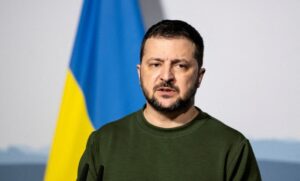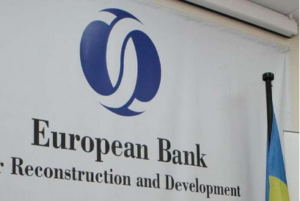
In Niger, one of the representatives of the military authorities, General Amadou Ibro, said at a rally in the capital that the country should prepare for “war” with France, accusing Paris of attempting to destabilize the situation. His speech took place in a stadium in front of a young audience, and a video of the speech was widely shared on social media.
According to Jeune Afrique and AFP reports, Ibro, who is said to be the chief of staff of Niger’s leader Abderrahmane Tiani, claimed that France allegedly intends to wage war on Niger and, in this regard, called for preparations for conflict.
The French side rejected these claims. Colonel Guillaume Vernet, a representative of the French General Staff, stated that “French intervention in Niger is not being considered” and called the accusations an element of “information warfare.”
The rhetoric came amid a sharp deterioration in relations between Niamey and Paris following the 2023 military coup and the subsequent withdrawal of French troops from the country. At the end of January 2026, Niger’s leader Tiani also publicly accused the French leadership and a number of neighboring countries of involvement in the attack near Niamey airport, without providing any evidence.

Deputy Minister of Education and Science Mykola Trofimenko expects that after the war ends, the number of foreign students in Ukraine may grow to 100,000.
“Today, our universities combine many areas of study, including those that are important for society, such as resilience. Europeans cannot understand this. And this, by the way, is one of the factors that will contribute to an increase in the number of foreigners after the war ends. Because now we have 20,000 foreigners studying here, and before the full-scale war there were about 80,000. The goal is to recover after the war ends to 100,000 foreign students,” Trofimenko said in an exclusive interview with the Interfax-Ukraine news agency.
He stressed that everything must be done to ensure that our universities maintain this network of contacts and their ability to teach foreigners.
“And after the war ends, we will see a significant recovery in the number of foreign citizens who will receive education at our Ukrainian universities,” the deputy minister added.
As reported, in 2025, 5,475 foreign students were enrolled in Ukrainian higher education institutions, which is 534 more than in 2024 (4,941).

Ukrainian President Volodymyr Zelensky said that “a weak Russia and a defeated Russia are not beneficial,” so he believes that China is not seeking an end to the Russian-Ukrainian war.
“Of course, China is a strong country with a strong economy, and most importantly in our case, it has influence over Russia, personally over Putin. But with all due respect to the Chinese people, their history, and their culture, we must honestly say that I don’t see how ending this war would benefit China. Why? Because, I think we have read… the new US (security) doctrine… These are two great powers, great economies, and this is a great confrontation. This does not mean that it is a war, it may be any diplomatic or economic confrontation – this is happening. And today, a weak Russia and a defeated Russia in this format is not beneficial to China.
And because of this, honestly, the Ukrainian people are suffering,“ Zelensky said, responding to a question from journalists on WhatsApp on Monday.
Zelensky added that if ”it is not beneficial for China to stop Russia, it means that the war will continue.”
“This does not mean that China directly supports Russia with weapons, but it certainly does not support stopping this war. That is final. Plus, there are various reports from our intelligence services about the supply of machine tools and other items from China to Russia, but I have not been informed of any direct supplies of weapons,” Zelensky said.

Russian aggression on the territory of Ukraine has caused unprecedented destruction of the natural environment, destruction of ecosystems, and large-scale pollution of the air, soil, and water resources. Since the start of the full-scale invasion, the amount of damage caused to the environment has reached 6.01 trillion hryvnia, according to the Ministry of Economy, Environment, and Agriculture, citing data from the State Environmental Inspection.
“These are the largest environmental losses recorded in Europe in modern history,” the Ministry of Economy emphasized.
According to the State Environmental Inspection’s estimates, the total amount of damage includes UAH 1.29 trillion in damage to soil, UAH 967 billion in damage to atmospheric air, UAH 117.8 billion in pollution and contamination of water resources, and UAH 3.63 trillion in destruction of nature reserve areas.
One of the most destructive incidents was the fires at oil depots, according to the State Environmental Inspection. For example, after a strike on an oil depot in the village of Kryachky in the Kyiv region, toxic emissions into the atmosphere reached more than 41,000 tons, and soil pollution exceeded permissible limits by 17 times. Similar incidents occurred in Chernihiv, Sumy region, Rubizhne, and Severodonetsk, where Russian missiles hit tanks containing ammonia and nitric acid, causing dangerous chemical emissions.
The destruction of hydraulic structures also has long-term consequences, the agency emphasized. The blowing up of the Kakhovka hydroelectric power plant dam in 2023 caused a large-scale ecological and hydrological collapse in southern Ukraine and the Black Sea region. Natural complexes were destroyed, hydrology was altered, and protected areas were affected. The destruction of the Oskil Reservoir dam had similar consequences, with 76% of the water volume lost and the aquatic ecosystem destroyed.
In total, 20% of Ukraine’s nature conservation areas were affected by the war, including 2.9 million hectares of the Emerald Network. Significant damage was done to the Kinburn Spit, Oleshky Sands, Kakhovka Reservoir, Lower Dnipro, dozens of Ramsar sites, and other valuable ecosystems. Several national parks and reserves remain under occupation, including Askania-Nova and the Black Sea Biosphere Reserve.
The State Environmental Inspection has highlighted problems with Ukrainian soils. Explosions, fires, and chemicals are changing their structure, reducing fertility, and causing heavy metals and toxic compounds to accumulate. The soil contains elevated levels of copper, lead, nickel, combustion products, sulfur and nitrogen compounds. This affects the quality of agricultural products, human health, and ecosystem restoration.
Ukraine is not the only country experiencing the environmental consequences of the war. There has been a documented cross-border impact: as a result of Russian strikes, approximately 3 million tons of harmful substances have been released into the atmosphere and spread across neighboring European countries. Large-scale fires—on oil products, critical infrastructure, and forests—have caused millions of additional tons of toxic emissions.
“At the end of 2024, the environmental damage from the full-scale war amounted to 2.78 trillion hryvnia, and today it already exceeds 6 trillion. Unfortunately, this figure continues to grow every day, as does the scale of destruction of Ukrainian nature. The environmental damage caused by Russia is measured not only in trillions of hryvnias — decades are needed to restore the destroyed ecosystems. And the scale of environmental destruction will go far beyond Ukraine,” said Deputy Minister of Economy, Environment, and Agriculture Ihor Zubovych.
The Ministry of Economy, Environment, and Agriculture stated that UAH 6.01 trillion is only the confirmed losses in territories controlled by Ukraine. The final scale of environmental damage will be known after complete de-occupation and the possibility of conducting a full investigation.

Ukraine’s economy may grow by about 4% in 2025, but the outlook remains fragile and depends entirely on external factors. This is stated in the latest report of the European Bank for Reconstruction and Development (EBRD) Regional Economic Prospects: Under Pressure.
According to the document, the main source of support for the Ukrainian economy is international financial aid, which is used to cover budget expenditures, social payments and defense. An additional driver of growth is the export of agricultural products through the EU “solidarity corridors” and alternative routes along the Danube and overland, which partially compensates for restrictions on maritime transportation.
There has also been a gradual recovery of infrastructure, including roads, bridges and the power grid, which is supporting economic activity.
However, the EBRD warns of high risks. Among them are a protracted war, high levels of public debt and inflation, as well as the vulnerability of export flows, which could be sharply reduced if sea routes are blocked.
According to the bank’s experts, digitalization of public services, agro-technology and development of renewable energy remain promising areas for Ukraine. However, this requires sustainable peace or conflict freezing, deeper integration with the EU market, as well as progress in judicial and anti-corruption reforms.
At the end of 2024, Ukraine’s GDP was estimated at around $160 bln. More than 60% of exports were agro-products (grain, oilseeds and processed products). The metallurgy, IT and energy sectors also retain potential for recovery.
The EBRD emphasizes that the Ukrainian economy is “under pressure”, but with continued international support and access to external markets, it can grow rapidly, laying the foundations for post-war transformation.

Over the past three and a half years, Ukraine has received more than $145 billion in international financial aid, which has allowed it to maintain macro-financial stability amid a full-scale war and guarantee all necessary social spending, Finance Minister Serhiy Marchenko said during a series of bilateral meetings with finance and economy ministers from G7 countries and the EU, representatives of the European Commission and the IMF on September 20 in Copenhagen.
“Given that the war continues, the challenges for the financial system remain, and continued external support is extremely important. In 2025 alone, more than $30.6 billion in external financing has already been attracted, and the need for the current year is $39.3 billion,” the Ministry of Finance quoted him as saying in a press release on its website.
It is noted that the minister discussed with his colleagues options for additional financial support for Ukraine, in particular, the possibility of implementing the European Commission’s recently presented initiative on a reparations loan guaranteed by frozen Russian assets.
As specified by the Ministry of Finance, as part of the G7 Extraordinary Revenue Acceleration for Ukraine (ERA) initiative worth $50 billion, Ukraine has received about $23 billion from its partners since the end of last year from the proceeds of frozen Russian assets.
Marchenko noted the support of the Canadian and EU governments for the initiative. In particular, Canada’s contribution to ERA is CAD 5 billion (about $3.4 billion), and the EU’s contribution is EUR 18.1 billion (about $20 billion).
In addition, the minister stressed that the government continues to work on implementing the necessary reforms for the implementation of the EU’s Ukraine Facility financial instrument for 2024-2027 in the amount of EUR 50 billion, within which more than EUR 22.6 billion has already been raised.
The Ministry of Finance specified that negotiations were held with Canadian Finance Minister François-Philippe Champagne, Danish Minister of Economy Stephanie Løse, European Commissioner for Financial Services, Savings, and Investments Maria Luisa Albuquerque, and Director of the IMF’s European Department Alfred Kemmer. The parties discussed the state of Ukraine’s financial system, budgetary needs for 2026, new mechanisms for budgetary support for Ukraine, and reforms.
In particular, Marchenko discussed with Kämmer the possibility of launching a new cooperation program with the IMF by the end of the year, a request for which the Ukrainian side recently sent to the Fund.
Earlier, the finance minister estimated Ukraine’s external financing needs in 2026 at $45.5 billion, and the total amount of external financing required for the period of the new four-year program with the IMF at $150 to $170 billion.
As reported, the current four-year EFF extended financing program with the IMF in the amount of $15.6 billion, which was approved in March 2023, initially provided for a total of $115 billion in external financing for Ukraine with the participation of international partners in the baseline scenario and $140 billion in the negative scenario, but with the delay in entering the war, these figures were increased to $153 billion and $165 billion, respectively.